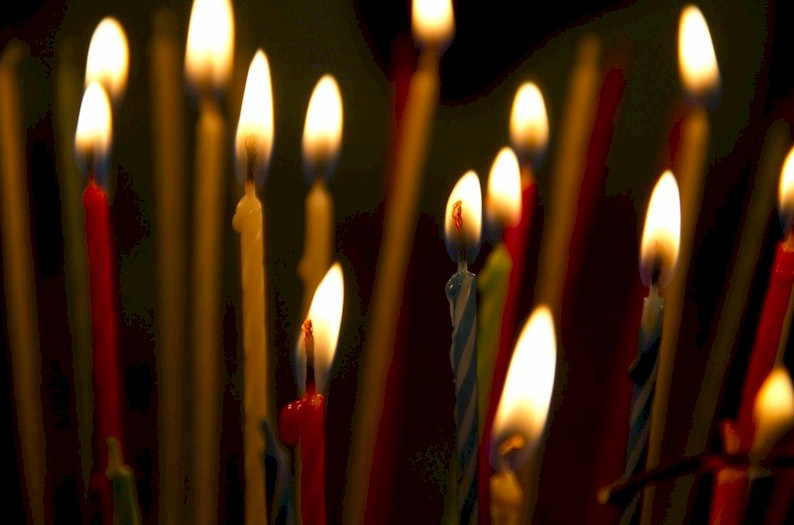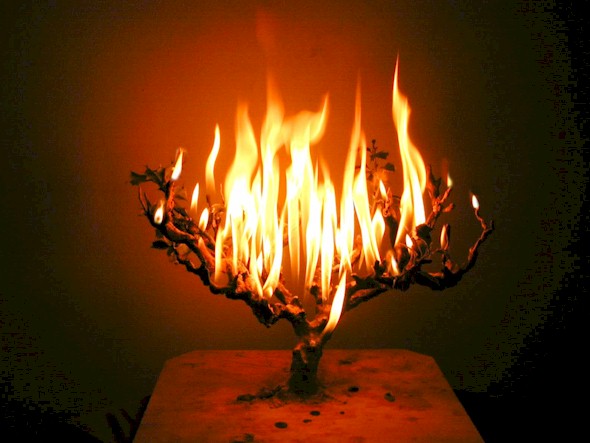 2:16 pm
2:16 pm
Scene: [Around the ideal form of a table sit Cassandra, Caesar, Thoth, Lizzie Twigg, Brunetto Latini, Mother Dana, and Little John. The theatre is darkened and an appropriate number of candles are burning with an inward light alongside several vestals’ lamps. Peatsmoke rises from the trapdoor along with wafts of incense made from opoponax and violets. Rest suddenly possesses the discrete vaulted cell, rest of warm and brooding air.]
Lizzie Twigg: Right. Thank you all for coming.
Little John: [Drunk, a little dumb] When are we getting paid?
Cassandra: Why is he here? His breath is harming the vibrations. And are those birthday candles?
Lizzie Twigg: Yes, they seemed appropriate. Don’t mind Little John, I found him vomiting in the greenroom and we needed one more body. Seven is the perfect number for a séance and I am determined to get it right this time. So let’s get started. Æ is loose among the living, he’s only just managed to go undetected, though just barely. So far he has appeared in Scylla and Charybdis, but there is no telling where he’ll turn up next so we have to get him back. Thoth, am I speaking too quickly?
Thoth: No, I’m recording it all perfectly, thanks. Learned from Chitragupta.
Cassandra: We won’t get him back.
Lizzie Twigg: He’s coming back. Now, be prepared for paradoxes. He is alive but he is also dead. His body has regenerated and though he appears normal, he is greatly decayed. But from looking he is what he was; his moles still appear in their usual places, but he is a bit soft. Also, his molecules are shuttling to and fro much too rapidly. Mother Dana, we will need your help to repair him when we get him back.
Cassandra: We won’t get him back.
Caesar: You said that already.
Mother Dana: I can weave and unweave bodies and reconcile him to himself, but I’m not sure what to do about sharpening him up.
Lizzie Twigg: Well, we’ll cross that Rubicon when we come to it. First, there can be no reconciliation if there has not been a sundering. Should be simple after that.
Caesar: [Simply] You think it’s so easy.
Cassandra: [Easily] Down, boy. Life was hard for us all. No need to get worked up about it now you’re dead.
Caesar: [Deadly] Vixen. Whore. Who listens to you? Your kind sickens me.
Little John: [vomits under the table] Shagart! Shagart!
Lizzie Twigg: Bear with me people. When Æ resurrected he took my heart with him.
Thoth: What did it weigh?
Lizzie Twigg: And I want him back. Besides, I may see myself as I sit here now, but by reflection from that which then I shall be. And that future which casts its shadow before includes Æ.
Cassandra: But this is eternity, honey, there is no future. The future is the conjoined twin sister of the past. That which was, is. That which may come to be, is. It’s an all-at-onceness, sweet girl, nothing more.
Lizzie Twigg: Exactly. And he’s not here. My is, is missing an aeon.
Cassandra: I warn you, Lizzie, bring him back and he will crave the world of the living. But you won’t bring him back.
Brunetto Latini: Dear Twigg, when he returns you must reassure him that he will live on in his work. Glory gives the wise man a second life; that is to say, after his death the reputation which remains of his good work makes it seem as if he were still alive.
Cassandra: It won’t be enough.
Lizzie Twigg: [Tossing off a glass of brandy neat] Please, let’s get started. Where there is reconciliation, there must have been first a sundering.
Caesar: You said that already.
 12:46 pm
12:46 pm